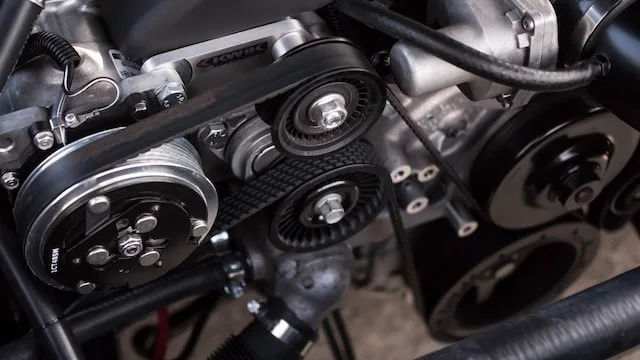Signs You Might Need to Replace Your Mass Airflow Sensor

Are you noticing strange behavior from your car, like an erratic engine that is idling too low or too high? The cause of this could be your mass airflow sensor. What’s a mass airflow sensor, and how do you know when it needs to be replaced? This blog post will explore these questions and guide you in understanding the warning signs that might indicate it’s time for you to purchase a new mass airflow sensor. Keep reading to learn more about this essential part of your vehicle’s air intake system.
Check engine light is on
Seeing the check engine light turn on in your dashboard can instantly cause worry and panic, leaving you wondering what could be wrong with your vehicle. It’s never a good feeling to know that your car is having issues. Oftentimes, the check engine light indicates that something is wrong with one of the sensors in your car, such as the mass airflow sensor. This sensor is crucial in regulating the amount of fuel that enters the engine, so if it’s not working properly, it could lead to reduced fuel efficiency and overall poor engine performance. If you suspect that your check engine light is due to a faulty mass airflow sensor or if you’re wondering when to disconnect the mass airflow sensor, it’s important to consult a trusted mechanic as soon as possible. This way you can ensure to avoid any further damage to your car.
Increased fuel consumption
Do you find yourself spending more money on gas? Has your vehicle’s fuel efficiency taken a hit? If so, it may be caused by a faulty mass airflow sensor. This essential component plays a crucial role in regulating the air-to-fuel ratio in your vehicle’s engine. Without it working properly, your vehicle will use more gas to compensate for the lack of airflow. If you suspect this is the issue, don’t hesitate to take it to a trusted mechanic to have it examined. It may save you money in the long run and help your car run more smoothly.
Hesitation when accelerating
Few things are as frustrating as stepping on the accelerator and feeling your car hesitate before finally speeding up. Fortunately, there’s a likely culprit behind this issue: the mass airflow sensor. This important component helps regulate the amount of air flowing into your engine, which of course affects how much power it can produce. Over time, the sensor can become dirty or worn, leading to inaccurate readings and engine performance issues. If you suspect that your car is struggling to accelerate, it may be time to have your mass airflow sensor replaced.
Reduced power output
Few things in life are as frustrating as a vehicle that is underperforming. If you’ve noticed that your car or truck seems to be lacking in power, there are a few different things that could be causing the issue. However, one common culprit is a faulty mass airflow sensor. This important device helps your engine manage its air-to-fuel ratio, but when it isn’t working properly, it can cause all sorts of problems. If you suspect that your vehicle’s reduced power output is due to a broken mass airflow sensor, it’s essential to get it replaced as soon as possible so that you can get back on the road with full power.
Stalling and rough idling
Picture this: you’re cruising down the highway, feeling the wind in your hair and the sun on your face. But suddenly, your car starts to sputter and shake, like it’s struggling to find its rhythm. Your heart races as you realize the engine might stall at any moment. What’s causing this? It could be a malfunctioning mass airflow sensor. This vital component helps regulate the amount of air entering the engine, which affects everything from fuel efficiency to engine performance.
Unusual smells coming from your engine
Have you ever caught an unusual smell wafting from your car’s engine? If so, don’t ignore it. Your sense of smell can actually help you diagnose potential issues under the hood, such as a malfunctioning mass airflow sensor. This small but important component helps regulate how much fuel is injected into the engine, so if it’s not working properly, your car could experience a range of problems from decreased fuel efficiency to stuttering or stalling out altogether.
In conclusion, it is important to recognize the signs that could indicate you need to replace your car’s mass airflow sensor. Whether you’re dealing with increased fuel consumption, hesitation when accelerating, reduced power output, or stalling and rough idling – all of these are possible symptoms of a faulty mass airflow sensor. Underscoring the importance of being aware of the symptoms, and unusual or strange smells coming from your car’s engine can also be an indicator that this part needs to be serviced or replaced. Ultimately, having a well-maintained vehicle with a functioning mass airflow sensor is key for ensuring your safety on the roads and avoiding potentially costly repairs in the longer term.



